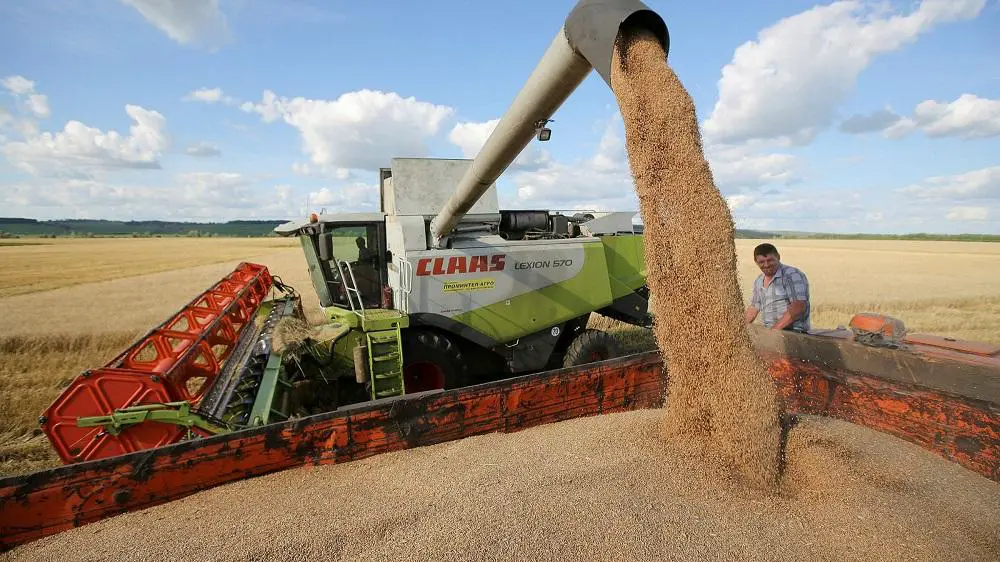- The war between Russia and Ukraine and the impact it has on global grain exports—which feed billions each day—highlight the urgent need for mobilizing private funding to ensure food security.
- Citi Research shows that Ukrainian grain harvests and exports this year could be down as much as 50 percent on pre-war levels. Africa is highly dependent on grains from Ukraine.
- Meanwhile, the April 2023 edition of the Agricultural Market Information System Market Monitor shows the gradual decline over the past 10 months of global grain and oilseed prices to levels prior to the war in Ukraine.
The devastating war pitting Russia against next door neighbour Ukraine and its stifling of global grain exports underscores the urgent need for mobilising private funding to provide food for the hungry in Africa, which has been depending on Kiev to feed her people.
This is the call-to-action from deVere Group’s CEO Nigel Green, and comes even as recent Citi Research reveals that Ukrainian grain harvests and exports this year could be down as much as 50 percent of the levels last seen before the war started.
The April 2023 edition of the Agricultural Market Information System (AMIS) Market Monitor also paints a gloomy picture with a gradual decline of global grain and oilseed prices over the past 10 months to the levels last reported before the war in Ukraine broke out.
Both Russia and Ukraine were among the top producers of grains in the world before the start of the bloody conflict in February 2022. “Russia’s invasion of Ukraine—and the pandemic before it—has underscored the fragility and complexity of the world’s food supply on which billions of people live every day,” Nigel Green told The Exchange.
“We expect that pressure will grow on the global food supply in the coming decade due to population growth, rising incomes in developing countries, disruption triggered by heightening geopolitical tensions, social unrest, labour shortages, soaring fertilizer costs, conflicting trade policies, and climate change.
“The current food crisis is, we believe, set to become the worst in a decade, meaning years of progress against poverty and hunger are being wiped out.”
He affirms: “We expect that over the next five years, rising food insecurity is likely to become a defining issue of our time.”
Read: The fog in Tanzania’s transition to clean kitchens
With so many variables, degrees of severity, and situations developing unexpectedly, governments alone will not be able combat the worst effects of human-triggered climate change.
Provide top level funding
“Governments are best-positioned to develop, implement and manage policy, incentives, standards, metrics and regulations. And, yes, they must also provide top-level funding,” says the deVere Group CEO.
“But due to the tens of trillions likely to be needed for structural changes to global food systems, there will remain a major funding gap if we rely solely on the public sector.”
This is especially true as governments are still stretched with the unprecedented financial fallout of the Covid-19 pandemic, for which no country was prepared and that upended economies globally.
Therefore, says Nigel Green, it is “essential to enable, unlock and mobilise private capital as a matter of urgency.”
To do this, the deVere CEO suggests that we need “cooperation between financial advisories, insurance firms, banks, wealth and asset managers, investment companies, fintech groups, banks and auditors, amongst others, to help unlock and mobilise the trillions of dollars of private finance that is urgently required.
“Without this, the level of funds required will simply not be there.”
According to the World Food Programme, “the scale of the current global hunger and malnutrition crisis is enormous, with an expected 345.2 million people projected to be food insecure – more than double the number in 2020. This constitutes a staggering rise of 200 million people compared to pre-COVID-19 pandemic levels… Unless the necessary resources are made available, lost lives and the reversal of hard-earned development gains will be the price to pay.”
Nigel Green concludes: “a combination of factors including war, economic upheaval and climate change means that urgent private finance inflows are essential to ensure greater levels of global food security and stability.”
